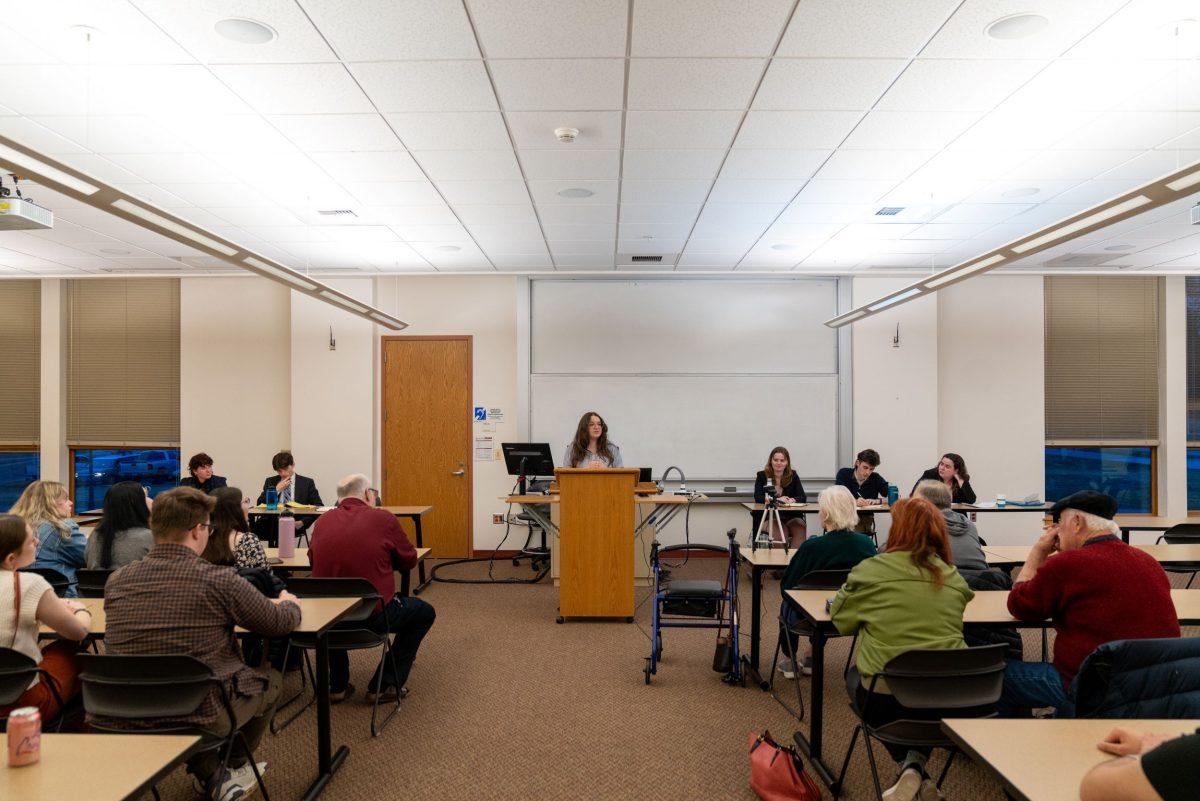Sleep and exercise may help students with mental alertness more than caffeine
When it comes to finding the energy to go to classes and take exams, winter can be one of the hardest times for college students. That is partly due to the fact that the days are growing darker. So how can one prevent daytime dozing, especially during finals week? Here are a few ways many students choose to increase mental awareness — but some come with a few warnings.
Energy drinks
Energy drinks have only been around in the U.S. since 1997, when Red Bull was first introduced into the market. They generally contain caffeine, herbal ingredients and vitamins.
“Be aware about what other things are in them,” said Elizabeth Abbey, registered dietitian and Whitworth lecturer of health science. “Some [energy drinks] have other added substances that are not tightly regulated.”
For that reason, Abbey said the purity and quality of energy drinks is sometimes questionable.
According to a study done by the Sleep Research Centre at Loughborough University, “functional energy drinks” (FEDs) containing sucrose, glucose, 80-mg caffeine, taurine, glucuronolactone and vitamins were beneficial in reducing sleepiness and sleep-related driving incidents. Energy drinks were used for the study because caffeine levels vary in coffee.
Still, another study done by the Department of Psychological Science at Northern Kentucky University showed that the effectiveness of FEDs on college students decreased as dosage increased. The optimal amount of Red Bull for someone who has not eaten recently was half a can, whereas on a full stomach it may be up to an entire can.
Abbey said students should be aware that eight ounces of energy drink usually c
ontains a little less than 100 mg of caffeine.
“Most energy drinks when you buy them are at least twice that amount or more,” Abbey said. “You have to look at the serving size.”
In 2010, the Institute of Food Technologists published an article that stated the U.S. contributed $7.6 billion in revenue to the industry in 2008. It is expected to more than double by 2013.
The bottom line: Energy drinks are proven to be effective — in moderation.
Coffee
Caffeine is naturally found in coffee beans, tea leaves, cocoa beans, cola nuts and other plants. In the study “Effects of caffeine on human health” from a 2003 issue of Food Additives and Contaminants, researchers estimated that coffee and tea are the primary sources of caffeine for adults in North America, whereas children consume most of it in soda pop and chocolate.
With two coffee shops on campus and several nearby, it’s clear that coffee drinking has become socially acceptable among the college population — but that is not so for everyone. Sophomore Brodrick Hirai said he personally chooses not to consume coffee or energy drinks because of the caffeine.
“I don’t think they’re healthy for you,” Hirai said. “It’s not natural because your body doesn’t make it naturally.”
When it comes to that caffeine craving, however, Abbey said, “Probably your best bet is just regular, black coffee.”
Black coffee does not contain empty calories that one finds in lattes, nor added substances like those found in energy drinks.
“If you’re getting mochas and lattes, that’s more than just a caffeine issue,” said Melinda Larson, associate professor of health science and head athletic trainer.
Users of caffeine may experience some side effects. Those include increased heart rate and blood pressure, jitteriness and addiction. As a stimulant, it can also interact with medications.
“It has a chemical effect on your brain like cocaine does,” Larson said. “Your brain says you need that.”
Cravings may indicate a deficiency or dependency on a food or substance, Larson said.
“If you’re trying to get that mental edge, before finals is not the time to start [drinking coffee],” Abbey said.
The bottom line: Coffee is effective, but again, practice moderation.
Physical Exercise
Exercise helps your brain function best, Larson said. That does not necessarily mean it has to be a 30-minute intense cardiovascular workout or even a trip to Graves Gym.
“Whatever works for you is best, because if you’re not going to like it, you’re not going to do it,” Larson said. “Walk the dog, play ping pong, do yoga or dancing; if that’s what you like to do, do it with other people. Whatever it takes to make you move.”
Hirai said that as a football player, he works out on average of four days a week.
“It’s hard to get started in the morning, but you work out and five to 10 minutes later you’re energized,” Hirai said.
Just a quick simple carbohydrate such as a banana is good to eat before a workout, Abbey said.
“You’re not going to go on a road trip without any gas in your tank, so don’t work out without any fuel,” Abbey said.
Eating within a half hour after a work out — just enough time to take a shower — is when your body is going to be most efficient at replacing energy and have a higher metabolism, Abbey said.
The bottom line: Exercise may be one of the best ways to get energized, but do what works for you.
Sleep and Diet
“For energy, the most important thing to do is to eat regularly and have breakfast,” Abbey said.
A good breakfast should contain carbohydrates, protein and fat. That does not have to be complicated, Abbey said. A bowl of cereal, toast with peanut butter or even a granola bar would be perfectly acceptable, she said.
“If it’s not real heavy on the greasy meats, pizza isn’t that bad for you,” Abbey said. “Cold pizza is definitely better than nothing.”
Something to keep in mind is that more complex and fiber-rich foods will keep you full for longer, Abbey said.
It is most important to have strong, consistent habits in both diet and sleeping, Larson said.
“Part of the function of sleep is for learning as well,” Abbey said. “Parts of your brain will function during sleep to build memory.”
While most college students need between seven and nine hours of sleep per night, it will vary among individuals. What is important is to be consistent with your sleeping habits, Larson said.
The bottom line: Stay consistent in your sleeping and eating habits, and eat regularly.
Those are just a few ways to increase mental awareness during the long winter. Other areas of research indicate that a “power nap,” a cold shower, exposure to the outdoors, music and preventing dehydration will also increase energy.






